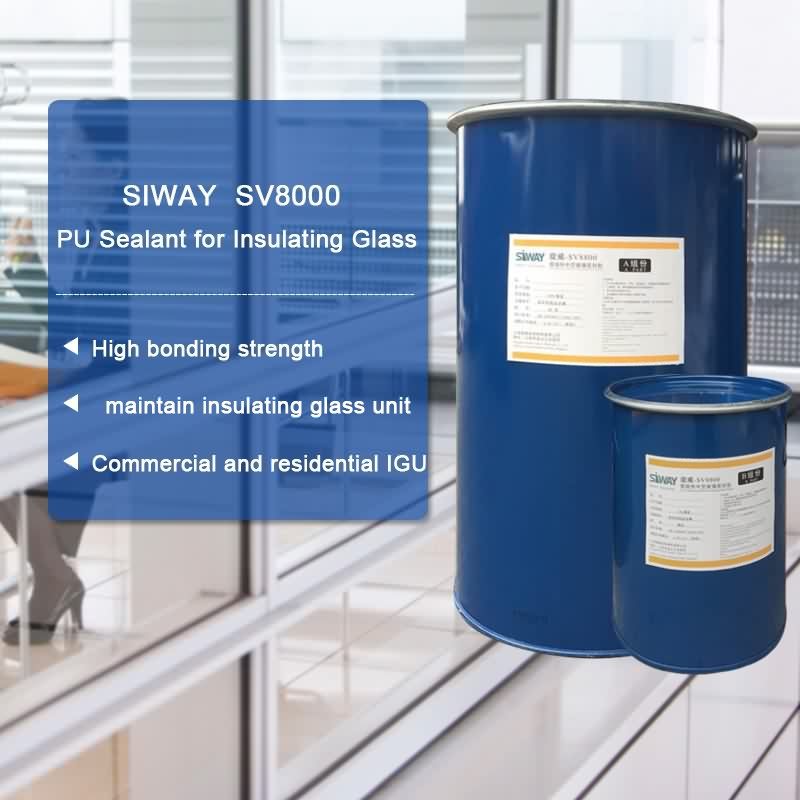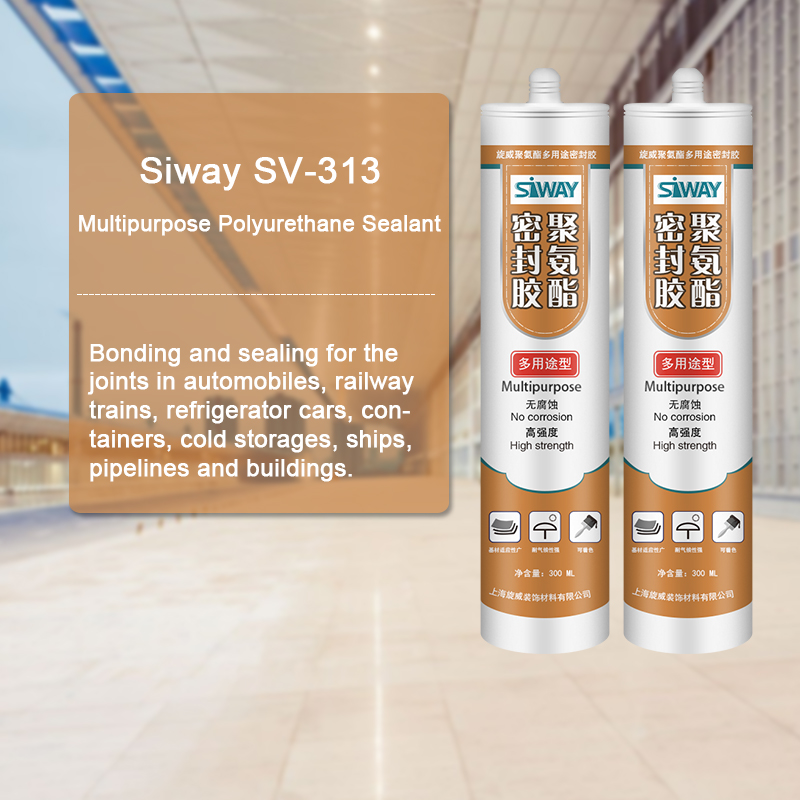2 Years\’ Warranty for SV-8000 PU Sealant for Insulating Glass for Philadelphia Manufacturer
Short Description:
Description SV – 8000 two-component polyurethane insulating glass sealant is a neutral cure, mainly used for the insulating glass of the second seal. Product formulation to use its performance with high modulus, high strength, to meet the requirements of insulating glass assembly. Where to use It is a two-component PU sealant that offers variable work life with high bonding strength to maintain the integrity of insulating glass unit, suits both commercial and residential IGU. Key Fe...
With our leading technology as well as our spirit of innovation,mutual cooperation, benefits and development, we will build a prosperous future together with your esteemed company for 2 Years\’ Warranty for SV-8000 PU Sealant for Insulating Glass for Philadelphia Manufacturer, Our tenet is clear all the time: to deliver high quality product at competitive price to customers around the world. We welcome potential buyers to contact us for OEM and ODM orders
Description
SV – 8000 two-component polyurethane insulating glass sealant is a neutral cure, mainly used for the insulating glass of the second seal. Product formulation to use its performance with high modulus, high strength, to meet the requirements of insulating glass assembly.
Where to use
It is a two-component PU sealant that offers variable work life with high bonding strength to maintain the integrity of insulating glass unit, suits both commercial and residential IGU.
Key Features
1. High Modulus
2. UV resistance
3. Low vapor and gas transmission
4. Primerless adhesion to coated glass
Technical data sheet
| Test project | standards | Value |
| Sagging degree (mm) | ≤3 | 0 |
| Operating time | ≥30 | 30 |
| Thermal weight loss(%) | ≤10 | 2 |
| Durometer Hardness Shore A | 20-80 | 42 |
| tensile propcrties(MPA) | >0.4 | 1.0 |
| Bond damage area(5%) | ≤5 | 0 |
Certification
GB-24266-2009;
Color
Component A(Base) – White, Component B(Catalyst)- Black
Package
1. Component A(Base): (190L), Component B(Catalyst) (18.5L)
2. Component A(Base):24.5kg (18L), Component B(Catalyst): 1.9kg (1.8L)
Shelf life
12 months
Note
If you want the TDS or MSDS or other details, please contact with our sales person.
Backer board installation – when tiling bathroom floor.
https://www.frontierbasementsystems.com | 1-931-451-1133
John L. is a certified energy conservation specialist, and part of Dr. Energy Saver by Frontier’s team of experts. Dr. Energy Saver by Frontier specializes in helping homeowners throughout the Nashville, Franklin, Clarksville and Brentwood, TN areas make their homes more comfortable and energy efficient by providing comprehensive home energy evaluations and many energy saving services, including home insulation upgrades.
In this episode of the HomePro video series, John L. shows how to use spray foam insulation to air seal and insulate the supply duct in the attic, and the rim joist in the basement.
Because of the way the air moves inside a building, a lot of energy is wasted through attics and basements, therefore properly air sealed and insulated attics and basements are the two main components of an energy-efficient house.
In this particular home, the attic is a vented and unconditioned with HVAC ducts running through an environment that is mostly hostile year round: freezing cold during the winter, scorching hot during the summer. That means that the air that is running through these ducts — and you paid to cool and heat — is either loosing or gaining heat in the attic, before it even makes it to the living areas! That makes your HVAC system work harder and your energy bills to skyrocket. Using spray foam in this case will accomplish two things: it will insulate and seal the ductwork. Spray foam expands when it is applied, closing gaps and preventing air leakage.
Down in the basement, spray foam was used to insulate and air seal an area that is often overlooked in terms of insulation during construction: the rim joist. That can be a costly mistake because as the heated air in the living areas rises and escapes through the upper levels of the house, a lot of unconditioned outside air is sucked into the house from an unsealed, uninsulated rim joist. Homeowners with this type of problem usually experience cold floors, uneven temperatures around the house, and overall discomfort, in addition to high energy bills.
If you live in the Nashville, TN area and would like to have a more comfortable home and save money in energy bills, visit our website or call for a free, in-home estimate today!




